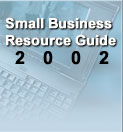 |
| |
| |
| |
| |
| |
| |
| |
| |
| |
| |
| |
| |
| |
| |
| |
|
Other Tax Issues of InterestTrustA Trust is a legal entity created under state or common law. The trustee holds property for another person called a beneficiary. Most trusts are used for the protection or conservation of property. Trusts actually operating as a "Trust" as defined by the Internal Revenue Code should file Form 1041, U.S. Fiduciary Income Tax Return. Sometimes an actual business is operated in the form of a partnership, corporation, or sole proprietorship instead of a trust. A trust operating as a partnership reports income and expenses using the Form 1065, U.S. Partnership Income Tax Return. Income and expenses are passed to the partners on the Form 1065 Schedules K-1. A trust that has been granted a corporate charter under federal or state law reports its income and expenses on Form 1120, U.S. Corporation Income Tax Return. A trust operating as a sole proprietorship reports income and expenses on the Schedule C of the Form 1040 of the person who actually owns and operates it. A trust computes its income tax liability in much the same way an individual does and is allowed most of the credits and deductions that an individual is allowed. Deductions not allowed to individuals are not allowed to trusts.
Important References Publication
925 Web Link IRS' Frequently Asked Trust Questions |